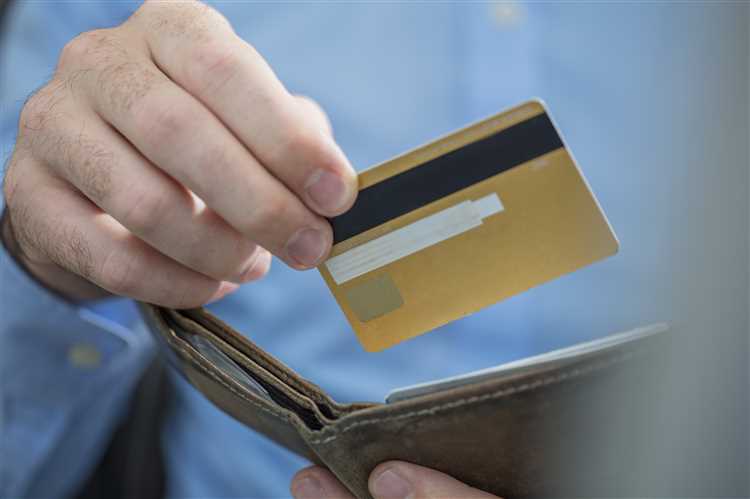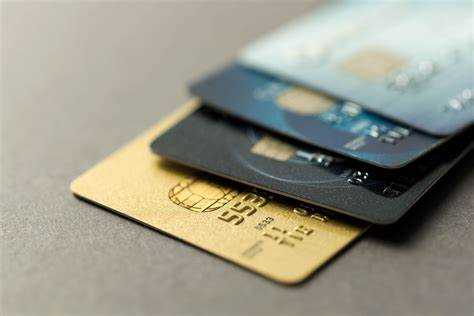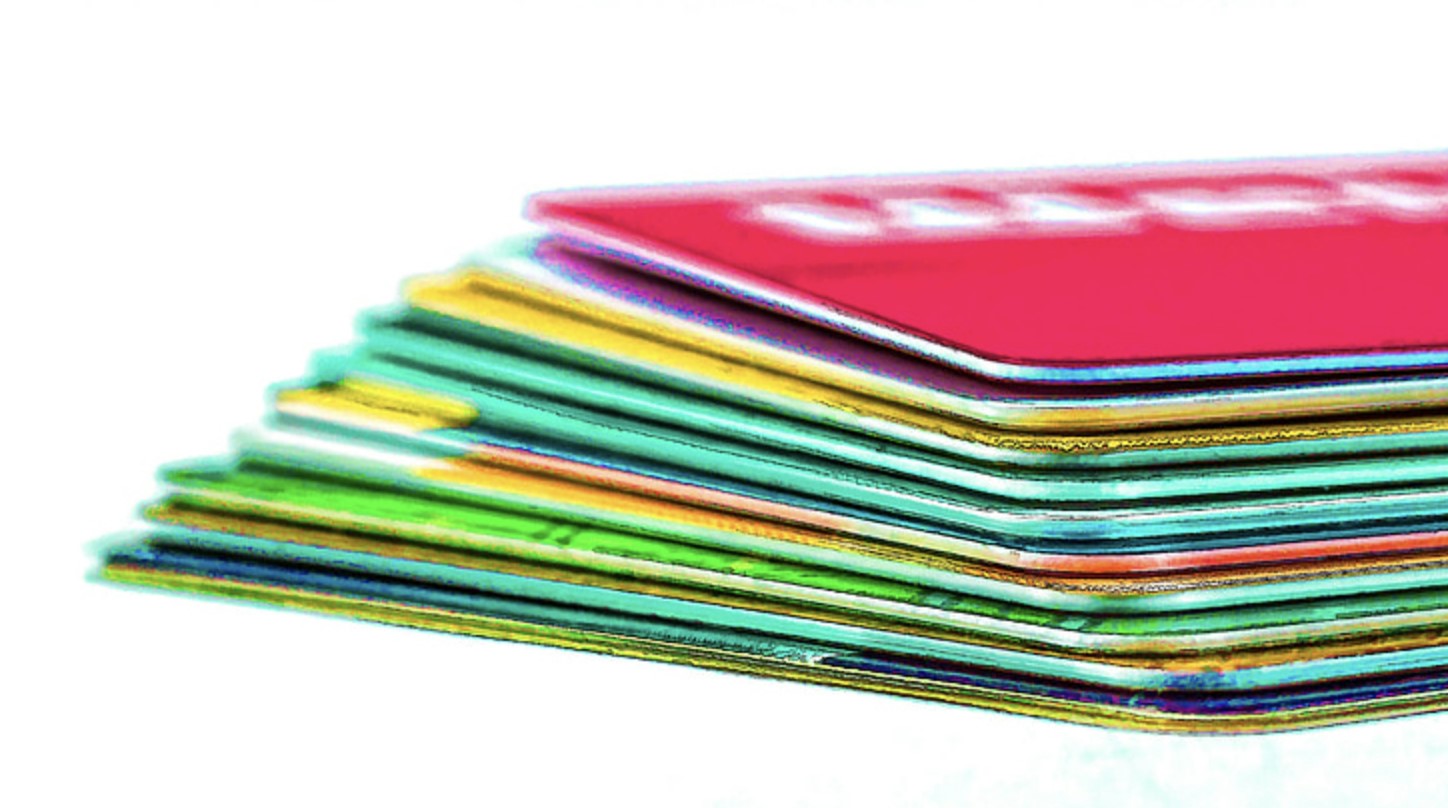Are you new to the world of credit cards and looking for the perfect one to start your financial journey? Look no further! We have done the research for you and found the best credit card options for beginners. Whether you are a student just starting out or someone who wants to build credit, there is a card out there that is perfect for you.
Building credit is an important step towards financial independence and stability. A credit card can be a valuable tool in establishing a solid credit history. But with so many options available, it can be overwhelming to choose the right one. That’s why we have compiled a list of the best credit cards for beginners, taking into consideration factors such as low fees, rewards programs, and ease of use.
One of the top credit cards for beginners is the XYZ Bank Starter Card. With its low annual fee and easy application process, this card is perfect for those who are just starting out on their credit journey. It offers a beginner-friendly credit limit, allowing you to gradually build your credit score without the risk of overspending.
If you are a student, the ABC University Student Card is the ideal choice for you. Not only does it offer great rewards and perks tailored to students, but it also provides tools and resources to help you learn about responsible credit card usage. This card is designed to help students build credit while still in school, setting them up for financial success in the future.
Understanding Credit Cards

What is a Credit Card? Credit cards, issued by financial institutions, enable borrowing up to a set limit for convenient purchases. Responsible usage builds credit history, offering perks. However, misuse can lead to high costs and damage credit scores. Understand terms and use them wisely.
Understanding Credit Cards
- Credit cards are crucial tools in personal finance.
- They offer a line of credit for purchases and cash advances.
- Credit card usage involves borrowing money with an agreement to repay with interest.
- Different from using debit or cash as it involves borrowed funds.
- Key features include carrying a balance, subject to interest charges.
- Interest rates can vary significantly, impacting the cost of carrying a balance.
- Credit limit sets the maximum chargeable amount; exceeding it incurs fees and penalties.
- Managing credit utilization ratio (amount of used credit) is vital for a good credit score.
- Responsible credit card use can positively impact credit scores.
- On-time payments, low credit utilization, and avoiding excessive credit applications are essential.
- Awareness of fees is crucial; common fees include annual, late payment, cash advance, and foreign transaction fees.
In summary, credit cards are important for personal finance, but understanding their workings and using them responsibly is essential for a strong financial future.
How Does a Credit Card Work?

A credit card is a payment method that enables borrowing money from a financial institution for purchases. It’s widely accepted and offers benefits and rewards. When approved for a credit card, you receive a credit limit based on factors like income and credit history.
You can use your credit card for purchases at stores and online. You can choose to pay the full balance or make a minimum payment, usually a small percentage of the total. If you pay only the minimum, interest accrues, and the Annual Percentage Rate (APR) varies by issuer. Paying the balance in full helps avoid interest charges.
Credit cards also offer features like cash advances (with higher interest rates) and balance transfers (often with promotional rates). Understanding how credit cards work and using them responsibly can help build a strong financial future.
Choosing the Best Credit Card for Begginers

When it comes to choosing the right credit card for beginners, there are several factors to consider. Here are some key points to keep in mind:
| Interest rates: | Look for credit cards with low interest rates. This is especially important if you plan to carry a balance on your card. High-interest rates can quickly accumulate debt. |
| Fees: | Check for any annual fees, late payment fees, or over-limit fees. Choose a card with minimal fees or look for cards that waive certain fees for the first year. |
| Rewards programs: | Consider if you want a credit card that offers rewards such as cashback, travel points, or discounts on purchases. Look for a rewards program that aligns with your spending habits. |
| Credit limit: | Find out what the credit limit is for the card. Ensure that it is suitable for your needs and financial situation. A higher credit limit can provide more flexibility, but also more temptation to overspend. |
| Additional benefits: | Some credit cards offer additional benefits like purchase protection, extended warranties, or travel insurance. Consider if these features are important to you and choose accordingly. |
Remember, choosing the right credit card is an important step in building a solid financial foundation. Take the time to compare options, read the fine print, and select a card that meets your needs and goals.
Benefits of a Beginner Credit Card
Starting out with a beginner credit card can provide numerous benefits for individuals looking to build their credit and improve their financial future.
- Establishing Credit: A beginner credit card allows individuals to start establishing their credit history. By making timely payments and keeping their credit utilization low, cardholders can demonstrate responsible credit behavior, which is crucial for obtaining future loans or credit.
- Building Credit Score: Regular and responsible use of a beginner credit card can help individuals build their credit score over time. This is important as a good credit score can lead to better interest rates on loans and credit cards.
- Access to Credit: Having a beginner credit card provides individuals with access to credit that they may not have otherwise. This can be especially helpful during emergencies or when making larger purchases.
- Rewards and Perks: Some beginner credit cards offer rewards and perks, such as cash back or points that can be redeemed for travel or merchandise. While these may not be as generous as rewards offered by premium credit cards, they can still add value to cardholders’ financial lives.
- Fraud Protection: Beginner credit cards often come with built-in fraud protection features, such as zero liability for unauthorized charges. This can provide peace of mind and additional security when using the card for online or in-person transactions.
Budgeting and Financial Management: Using a beginner credit card can help individuals learn important budgeting and financial management skills. By tracking their expenses and making monthly payments, cardholders can develop responsible spending habits and gain a better understanding of their overall financial situation.
Earn Rewards and Cashback
When selecting a credit card for beginners, consider the rewards and cashback options it offers. Many cards provide various reward programs, including points or cashback on purchases, which can lead to savings or free perks. Some cards offer a flat cashback rate (usually 1% to 2%), while others reward specific spending categories like dining or travel. It’s crucial to match the card’s rewards to your spending habits.
Additionally, some credit cards offer rewards such as travel points, merchandise, or gift cards, which can be valuable if you enjoy traveling or have specific purchases in mind. Understand the card’s terms, including caps on rewards, spending requirements, annual fees, and any sign-up bonuses.
To maximize rewards, manage your credit card responsibly by paying the balance in full each month to avoid interest charges. Choosing a credit card with rewards can help build a solid financial foundation while enjoying additional benefits.
Access to Emergency Funds
Emergency funds are vital for financial stability, so ensure your credit card provides access to them. Look for a card with a high credit limit and a low interest rate to avoid excessive debt from high interest charges. Some cards offer features like cash advances or balance transfers for emergencies, but these should be a last resort. Remember that an emergency savings fund should be your primary resource for unexpected expenses. Before choosing a credit card, review its terms to understand fees associated with cash advances or balance transfers. In conclusion, select a credit card that offers rewards and access to emergency funds, but prioritize building an emergency savings fund for unexpected expenses.
Tips for Responsible Credit Card Use
Using a credit card responsibly is essential for building a solid financial future. Here are some tips to help you make the most of your credit card:
1. Pay your bills on time: Late payments not only incur fees but also negatively impact your credit score. Set up automatic payments or reminders to ensure you never miss a payment.
2. Stay within your credit limit: It’s important to keep your credit card balance below the assigned credit limit. Maxing out your card can harm your credit score and lead to additional fees.
3. Pay off your balances in full: Whenever possible, try to pay off your credit card balances in full each month. This will help you avoid interest charges and keep your debt under control.
4. Monitor your transactions: Regularly review your credit card statements and online account to identify any unauthorized charges. Report them immediately to your card issuer.
5. Don’t overspend: It’s easy to get carried away with credit cards and accumulate debt. Only charge what you can afford to pay off and avoid unnecessary purchases.
6. Avoid cash advances: Cash advances often come with high-interest rates and fees. Try to use your credit card for purchases only and avoid taking out cash using your card.
7. Understand your rewards program: If your credit card offers rewards or points, familiarize yourself with the program’s terms and conditions. Make sure you understand how to redeem your rewards and any limitations that may apply.
8. Communicate with your card issuer: If you experience financial difficulties or have any concerns about your credit card, don’t hesitate to contact your card issuer. They may be able to offer assistance or provide you with alternatives.
By following these tips, you can establish good credit habits and use your credit card as a tool to build a strong financial future.
What are some tips for people who are new to credit cards?
For those who are new to credit cards, it’s important to start with a beginner-friendly credit card that offers low fees and a low credit limit. It’s also crucial to pay off the balance in full each month to avoid accruing interest. Additionally, it’s a good idea to monitor your credit score regularly and make payments on time to build a positive credit history.
What should I look for when choosing a credit card as a beginner?
When choosing a credit card as a beginner, there are several factors to consider. Firstly, look for a card with no annual fees and low or no foreign transaction fees. It’s also important to find a card with a low credit limit and a competitive interest rate. Finally, consider if the credit card offers any rewards or cashback programs that align with your spending habits.
Are there any credit cards specifically designed for beginners?
Yes, there are credit cards specifically designed for beginners. These cards typically have low credit limits and are more accessible to those with limited or no credit history. Some of these cards also offer educational resources and tools to help beginners understand how credit cards work and how to manage their finances responsibly.
What are the potential risks of using a credit card as a beginner?
As a beginner, the potential risks of using a credit card include accruing high-interest charges if the balance is not paid off in full each month. There is also the risk of overspending and accumulating debt that can be difficult to repay. It’s important to use a credit card responsibly and not rely on it as a source of funding beyond your means.
What is the best credit card for beginners?
The best credit card for beginners depends on individual preferences and financial habits. Some popular options include the Discover it® Secured Credit Card, Capital One Platinum Credit Card, and Chase Freedom Unlimited. It is important to compare various features such as interest rates, rewards programs, and fees to find the best fit.
Do credit cards for beginners have annual fees?
Some credit cards for beginners may have annual fees, while others may not. It is crucial to read the terms and conditions of the credit card before applying to determine if there are any annual fees associated with it. There are several credit cards available for beginners that do not have any annual fees.

